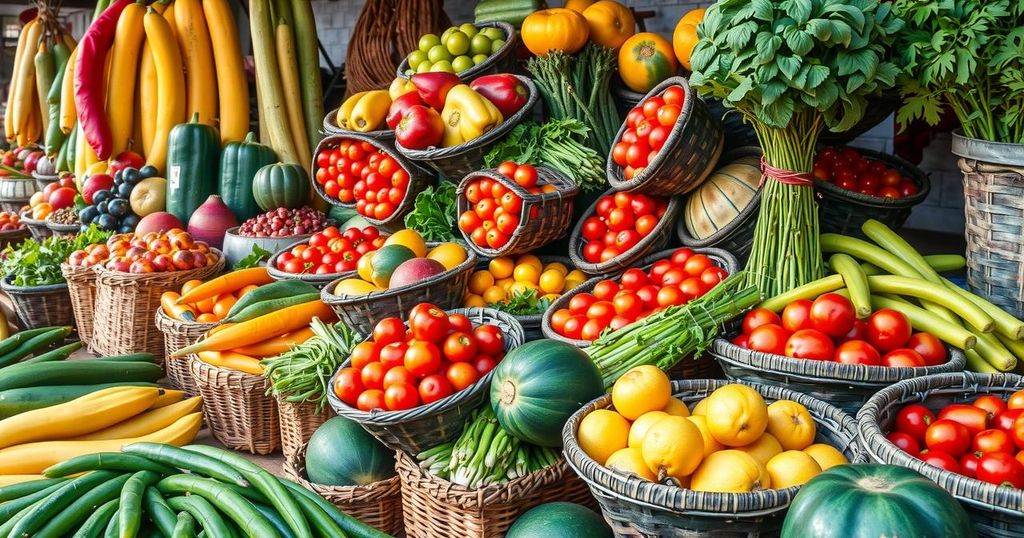Business
economics
AFRICA, CA, CBN, CENTRAL BANK OF NIGERIA, CYPRESS, CYPRESS CENTURIONS, CYPRESS CENTURIONS BOYS BASKETBALL, EUROPE, GDP GROWTH, GLOBAL ECONOMY, INFLATION, INTEREST RATES, INTERNATIONAL TRADE, JAYLUCHS JORDAN, NIGERIA, NIKE JA, NORTH AMERICA, NORWAY, OS, OSUN, PATEL NIKESH, SERA, TI, TITILOPE ADAKO, UNITED STATES
Jamal Walker
0 Comments
Nigeria’s $1.87 Billion Food Import Expenditure Despite Inflation
In the first nine months of 2024, Nigeria spent $1.87 billion on food imports, marking a $235.11 million increase from 2023. Monthly allocations fluctuated significantly, with notable rises observed from July to September. Despite local agricultural initiatives, the country continues to depend heavily on imported food, indicating ongoing challenges in its agricultural sector.
Nigeria has expended a total of $1.87 billion on food imports during the first nine months of 2024, as reported by the Central Bank of Nigeria (CBN). This expenditure reflects an increase of $235.11 million compared to the $1.64 billion spent in the same period of 2023, indicating a 14.37% rise in foreign exchange allocations for food imports to satisfy local demand.
Throughout 2024, monthly foreign exchange allocations for food imports experienced considerable fluctuations. A notable decline of 33.08% was recorded in January, reducing allocations from $245.69 million in 2023 to just $164.43 million. This was followed by a significant rebound in February, where the allocations nearly doubled to $303.91 million, up from $163.57 million the previous year.
The latter half of 2024 witnessed dramatic increases in spending on food imports. In July, allocations surged by 158.82% to $149.91 million from $57.91 million in 2023. The trend continued in August, with a staggering increase of 188.51%, culminating in $275.04 million up from $95.33 million. Subsequently, September reflected a 74.13% rise, reaching $208.68 million compared to $119.87 million from the previous year.
Despite these fluctuations in foreign exchange allocations, Nigeria’s food import spending for 2024 has shown a substantial surge. This continued reliance on imported food persists despite various initiatives aimed at enhancing the country’s agricultural production capabilities, highlighting ongoing challenges in Nigeria’s agricultural sector.
The Central Bank of Nigeria has reported significant expenditures on food imports in 2024, amounting to $1.87 billion, which reflects a substantial increase from the previous year. Monthly fluctuations indicate a volatile market, with notable spikes particularly in the latter half of the year. Despite efforts to boost local agricultural production, Nigeria remains heavily dependent on food imports, a situation that warrants attention and action to strengthen domestic agriculture.
Original Source: osundefender.com




Post Comment